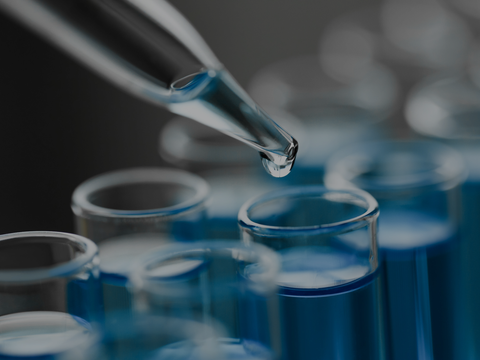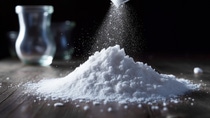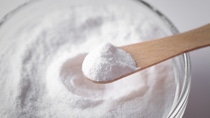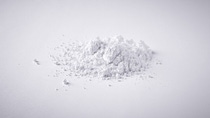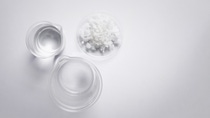Our products
Monomers
Our Inorganic Chemicals
The Inorganic Chemicals business of BASF is leader in the production and supply of inorganic salts and alcoholates.
Often used as functional materials or catalysts in a multitude of applications, inorganic salts and alcoholates are building blocks of performance and value creation in demanding industrial process, as well as in sensitive uses such as nutrition, or animal feed. Because of the paramount importance of quality, reliability, and product stewardship for their applications, customers turn to BASF to find the solutions that they need, relying on the consistency or our products and many years of experience and technical support in those chemistries.
Learn more

Alcoholates
Biodiesel has become an important component of modern fuels. For good reasons: it is sourced from renewable materials (incl. waste) and ensures reduced GHG emissions. The utilization of biodiesel reduces the use of fossil fuels. Today's biodiesel blends satisfy engine manufacturers' call for high-quality, powerful and economic fuels. Such Biodiesel is made from vegetable oils, animal fats or used cooking oils (besides other waste materials). These conversion processes require catalysts. BASF's high-quality sodium and potassium methylate are ideal to convert these renewable materials into high performing biofuels.
Sodium and potassium methylate
Sodium and potassium methylate are efficient and reliable catalysts that provide a sustainable solution for the production of crop protection agents, pharmaceutical agents and biodiesel.
Our products for the biodiesel industry meet the requirements of engine manufacturers for high-quality fuels and lower emissions. Both products support higher yields and low preparation cost for biodiesel and are produced at BASF's Ludwigshafen Verbund site. Sodium methylate is also produced in Guaratinguetá, Brazil.
A 30 % sodium methylate solution in methanol is the most commonly used catalyst to enable transesterification processes of triglycerides. The more reactive 32 % potassium methylate solution is used in the transesterification of special oils and greases. Both products are available in methanol as fully formulated, ready-to-use solutions.
For Life-sciences, sodium and potassium methylate are also being produced as methanol-free crystals. These are perfectly adapted for the need of Agrichemicals producers and similar complex chemical synthesis: such processes perform best in the absence of water, methanol or any other alcohol. Our crystalline alcoholates have been specifically tailored for these high demands and can thus be employed as stoichiometric reagents/bases in such demanding chemical synthesis.
Sodium Methylate
|
|||||||||||||||||||||||
Potassium Methylate
|
Sodium ethylate
At our Ludwigshafen site we also produce sodium ethylate. It is available as 21% solution in ethanol or in its ethanol-free, concentrated crystalline form. Typically, sodium ethylate is used to extract highly concentrated Omega-3 fatty acids from fish oils. However, our product is not limited to these processes but can be employed in any ethylester transesterification process, substitution reaction or when simply bases with higher solubility in chemical solvents are required.
Sodium Ethylate
|

Salts
Nitrogen Salts
When you opt for synthetic sodium nitrate and nitrite from BASF, you are guaranteed best-in-class purity and reliability. With technical grades formulated for advanced industrial explosives, and food grades helping food safety and preservation, BASF's salts help you enhance your products and processes.
Sodium nitrate
Sodium nitrate serves as auxiliary in many applications. For example, it is used for the production of explosives, anticorrosive agents, and as a concrete additive. Despite being one of the oldest BASF products, sodium nitrate is also used in new and innovative applications. Thanks to its outstanding heat storage properties, sodium nitrate is ideal for thermal energy storage plants. BASF provides sodium nitrate in various grades, all meeting the unique performance of on purpose, synthetically-produced sodium nitrate.
Sodium Nitrate
|
||||||||||||||||||||||||||
Sodium nitrite
Sodium nitrite is used for the production of diazo compounds and as a component of hydronic salts. Furthermore, sodium nitrite is an important basic material for the dyeing of textiles and is used in the chemical, pharmaceutical, and metal industry. BASF provides sodium nitrite in various grades, all meeting highest standards regarding quality and purity.
BASF's free flowing food grade product contains an anti-caking agent. This additive makes it is easier to make the exact concentration for preserving meat and sausage products with pickle-salt.
Sodium Nitrite
|
||||||||||||||||||||||||||
Ammoniumsalts
Ammonium salts from BASF are manufactured at their Ludwigshafen site under the strict quality guidelines required by the sensitive applications for this product.
Ammonium bicarbonate
Ammonium bicarbonate meets the highest requirements for various applications, particularly as a food additive as a leavening agent for dry baked goods. Ammonium Bicarbonate is also used in technical applications for the synthesis of catalysts, as a blowing agent for foamed plastic or as a nitrogen donator for yeast cultures.
Ammonium Bicarbonate
|
||||||||||||||||||||||||||||||||||||||||||||
Ammonium carbonate
Ammonium carbonate is an important basic material for various applications. It serves as a leavening agent for food, foaming agent for the production of expanded material, as ingredient for shampoos or for the dyeing of textiles. Furthermore, ammonium carbonate is used for analytical purposes in the chemical industry.
Ammonium Carbonate
|
||||||||||||||||||||
Ammonium carbamate
Ammonium carbamate is used for the denitrification of exhaust emission and as decomposition stabilizer. For most applications, ammonium carbamate substitutes ammonia. BASF offers crystal ammonium carbamate that always meets highest standards regarding quality and purity.
Ammonium Carbamate
|
||||||||||||||||||||
Ammonium chloride
Ammonium chloride is a versatile technical salt used in many applications. It serves as an aroma chemical in food manufacturing. Ammonium chloride is used as acidity regular in animal food. Additionally, industrial uses include production of dry-cell batteries, cleaning agents, and water treatment chemicals and as an additive for the tanning of leather. BASF provides ammonium chloride in various grades, with manufacturing and regulatory certificates applicable to food and feed applications.
Ammonium Chloride
|
||||||||||||||||||||||||||||||||||||||
Ammonium sulfate
Ammonium sulfate is a versatile technical salt, used in various applications. It is used for production of fire extinguisher powders, as nutrient for microorganisms or as hardener for chip board manufacturing. Furthermore, ammonium sulfate serves for the production of flame resistant textiles or papers.
As a regional product, availability and distribution channels vary by country.
Ammonium Sulfate
|
||||||||||||||

Sulfites
Sodium sulfite
Sodium sulfite is a highly effective reducing and bleaching agent. It is used in the photographic industry as oxidation protection for developer solutions, as an anti-corrosion agent in water treatment and as an antichlorine in the textile industry. Additionally, it is applied as a food preservative, providing effective protection against oxidation and spoilage. BASF offers sodium sulfite in various grades, all of which meet the highest standards of quality and purity.
Sodium Sulfite
|
||||||||||||||||||||||||||
Sodium metabisulfite
In the chemical and pharmaceutical industries, sodium metabisulfite is primarily used as a reducing agent. It is also ideal for bleaching plant fibers and textiles, and for producing solutions used in the development of photos and films. Additionally, it is used for the treatment of tanning agents in the dyeing of textiles. In the food industry, sodium metabisulfite is applied as an anti-melanosis agent for sea food and as a preservative for packed and processed food. BASF offers sodium metabisulfite in various grades, all of which meet the highest quality standards.
Sodium Metabisulfite
|
||||||||||||||||||||||||||
Potassium metabisulfite
Potassium metabisulfite is a powerful reducing agent primarily utilized in the photographic industry: BASF's potassium metabisulfite is ideal for acidifying fixing baths or as a reducing component in formulations. Additionally, it is widely used as a preservative in the winemaking industry and the food processing industry. Both our consistently high quality and our excellent customer service ensure the satisfaction of our customers. BASF's potassium metabisulfite always meets the highest standards.
Potassium Metabisulfite
|
Sodium bisulfite solution
As a reducing agent, Sodium Bisulfite Solution 38-40% Technical Grade is an important basic product for the chemical and pharmaceutical industry. Additionally, it might be applied in water treatment and in the textile, and leather industry.
Sodium Bisulfite Solution
|
Potassium sulfite solution
Potassium sulfite solution is mainly used as reducing agent for the photographic industry as well as for the water treatment. BASF offers an aqueous solution containing 45% potassium sulfite.
Potassium Sulfite Solution
|

Hydrosulfites
Hydrosulfite F
Hydrosulfite F is BASF’s most versatile grade of sodium dithionite. Based on a formate manufacturing approach, in line with our commitment to solutions based on sustainable manufacturing technologies, Hydrosulfite F brings to your process the consistency, quality and support that characterizes BASF as the original pioneer of hydrosulfite chemistry.
Commonly used as a reducing agent in textile, or bleaching additive in pulp and paper applications, hydrosulfite F is also utilized in other chemical processes, mineral extraction and various industrial products. Hydrosulfite F is formulated with 88.0% min sodium dithionite content and is a GOTS approved additive by ECOCERT Greenlife as well as certified according to ZDHC Level 3 v3.1.
Hydrosulfites by BASF SE are produced in Ludwigshafen, Germany.
Hydrosulfite F
|
HydroBlue® 90
HydroBlue® 90 is an improved formate-based hydrosulfite. It was formulated with a high degree of stability. HydroBlue® 90 offers an extra-long shelf life of two years. The smallest variation in terms of sodium dithionite content can affect dyeing results, such as ring dyeing, fastness, and color fixation. With the consistent sodium dithionite content in HydroBlue® 90, reliable dyeing results are achieved to reproduce the same shade. In addition, measurements show that HydroBlue® 90 contain significantly less SO2 than other hydrosulfites, resulting in a reduced odor. HydroBlue® 90 is also dustfree. HydroBlue® 90 is a GOTS approved additive by ECOCERT Greenlife as well as certified according to ZDHC Level 3 v3.1.
Hydrosulfites by BASF SE are produced in Ludwigshafen, Germany.
HydroBlue®90
|
HydroBlue® 92
HydroBlue® 92 is an improved formate-based Hydrosulfite which surpasses by far the market-standard Hydrosulfite grade, available on the market in quality and efficiency. Over other formate-based products, HydroBlue® 92 offers a higher sodium dithionite content of 92 %, unprecedented stability and contains less impurities. This leads to an excellent consistency of dyeing results. HydroBlue® 92 Contains at least 200 times less SO2 than the standard formate-based Hydrosulfites available on the market and is a GOTS approved additive by ECOCERT Greenlife as well as certified according to ZDHC Level 3 v3.1.
Hydrosulfites by BASF SE are produced in Ludwigshafen, Germany.
HydroBlue®92
|
Adlite®
With a unique range of benefits for the pulp and paper industry, Adlite® offers new ways to approach thermomechanical pulping (TMP). Adlite® provides a brightness gain comparable to oxidative bleaching, a higher wood yield, substantially lower energy consumption, and less demand of chemicals in the entire production process from stock preparation to wastewater treatment. In addition, Adlite®'s stabilization system will allow refiners to optimize production processes and cost structure, while providing extra degrees of freedom to design paper grades.
In more details, Adlite® is the first reductive solution to offer a degree of brightness comparable to oxidative bleaching while keeping the uniformity of the wood fiber intact. Adlite® facilitates a smooth separation of the fibers out of the wood structure. Whereas the oxidative process requires the handling of various additional chemicals, Adlite® just adds just one substance to your paper production and thus, allows safe and easy handling. Since Adlite® offers high selective reaction control, no unwanted side reactions occur during the process. This avoids corrosion and deposits and your refiners run trouble-free with higher productivity for a longer period of time. The quality of your final product is much less dependent on the quality of the wood. Adlite® preserves the wood fiber during the milling process, the desired paper grade can be achieved with less energy and wood consumption. The same goes for the bleaching process: more ISO brightness for less energy. In general, Adlite® makes it much easier to meet environmental requirements.
Hydrosulfites by BASF SE are produced in Ludwigshafen, Germany.
Adlite®
|
Blankit®
No matter the source of raw material, Blankit® from BASF will help you achieve the optimal bleaching result. Blankit® is especially effective with recycled paper raw materials and is a white, microcrystalline powder blend with sodium dithionite (Na2S2O4) as a main component. Blankit® products can be tailored to the industry’s specific needs. Focus is not only on the bleaching processes examined processes from start till end - from energy use to waste water disposal. With Blankit®, replacements of expensive raw materials such as cellulose with cheaper ones like waste paper are possible. This leads to reduced costs and preserves the environment. In addition, the paper fibers are also protected by a precisely coordinated product formulation. This product is only available in Europe.
Hydrosulfites by BASF SE are produced in Ludwigshafen, Germany.
Blankit®
|

Inorganic Acids and Bases
Nitric acid
Nitric acid is one of the most important basic materials in the chemical industry. It is used for a large variety of applications in different industries, e.g. for the production of nitrates and fertilizers, in metal working, in cleaning agents, for the production of celluloid or for the nitration of organic substances in the production of dyes, remedies, disinfectants.
Hydrochloric acid
Hydrochloric acid, also known as hydrochloric acid, is an aqueous solution of gaseous hydrogen chloride (HCl). It is a strong, inorganic acid and is a mineral acid. Its salts are called chlorides, the best known of which is sodium chloride (NaCl, common salt). It is used in industries such as mining, metal working and construction.
Sodium hypochlorite solution
Sodium hypochlorite solution is used as an oxidation agent, as well as for cleaning and disinfection purposes. With sodium hypochlorite solutions, paper, cellulose and textiles may be bleached. Furthermore, it is ideally suited for the chlorination of swimming pools. Sodium hypochlorite solution by BASF always meets the highest quality and technical standards.
Caustic soda
Caustic soda is an important base chemical for numerous applications. BASF has now a certified LowPCF variety that helps customers to offer even more sustainable products.

Metal Chlorides
Aluminum chloride
Aluminum chloride is used as catalyst or as a component of catalytic systems for various chemical reactions. Furthermore, aluminum chloride serves as an auxiliary in the manufacturing of pigments, dyes and colorants as well as in the paper and textile industry. BASF provides ground and screened aluminum chloride in anhydrous form.
Aluminum Chloride
|
Ferric chloride
Anhydrous ferric chloride is a strong oxidizing agent. It serves as catalyst in various chemical reactions. Just like aluminum chloride, ferric chloride is a moderately strong Lewis acid. Ferric chloride is mainly used for the manufacturing of pigments and colors as well as in textile and paper industry. Metal chlorides from BASF are recognized in the industry for setting the standards of quality and are well-suited for demanding chemical processes.
Ferric Chloride
|
